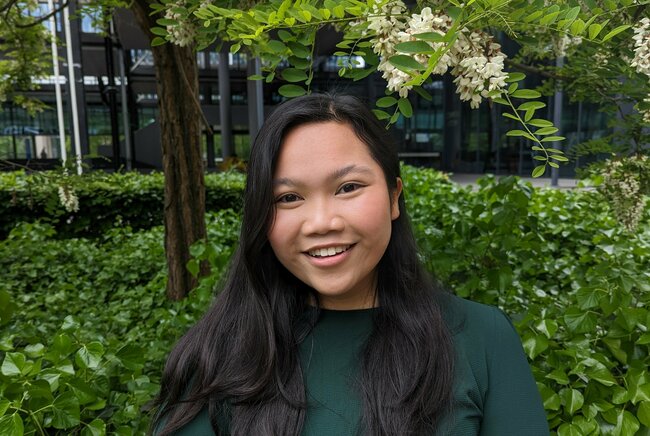Zafina Aminuddin has won a Unilever Research Prize
The Unilever Research Prize is a prestigious yearly award granted to 13 young scientists from Dutch universities for their outstanding research that has to contribute to the Sustainable development goals.

We are very proud that Zafina Aminuddin, who recently graduated for her Master degree in our Chemical Process Technology track, has won a Unilever Research Prize. The Unilever Research Prize is a prestigious yearly award granted to 13 young scientists from Dutch universities for their outstanding research. An important criteria for this prize is that their research has to contribute to one or more of the Sustainable Development Goals. Zafina worked on converting renewable solar and wind energy more efficiently into a transportable form. On November 23rd Zafina will receive the award and a prize of € 2,500 free to spend at the Unilever Food Innovation Centre ‘Hive’ in Wageningen.
Zafina was nominated for this prize by Professor John van der Schaaf who supervised her work on the conversion of hydrogen and CO2 to formic acid, with focus on catalyst development at the Sustainable Process Engineering group. If we need to store renewable energy in the form of hydrogen, this needs to be done at very high pressures or very low temperatures, which leads to difficulties in transport and storage. By binding the hydrogen to CO2 we get formic acid, which is a liquid at ambient conditions, which is much better suitable for transportation and for use as a fuel. The moment we need the energy we can convert the formic acid back to hydrogen and CO2 and the hydrogen can be burned or converted to electricity. The problem is that the reaction is very slow and needs a more active catalyst. This is what Zafina has tried to find in her graduation work. She synthesized many different catalysts and characterized these for selectivity and activity. The team she was part of has found a possibly interesting mixed metal catalyst that might accelerate the reaction at least twenty-fold, which they are currently investigating more closely.
Zafina showed her excellence by being much in the lead of this research project, extremely productive and creative, always suggesting alternative research paths and following up on these independently. Communicating in a very understandable and open way. What was most remarkable is that this research project experienced many experimental set-backs. She was never disturbed by any of this, but showed an impressive positive can-do attitude in all her activities.